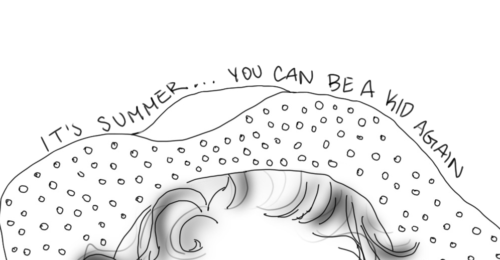Going to Harvard implies having it all figured out. With peers that serve in Parliament, compete in the Olympics, or have worked in Michelin star restaurants, it seems that everyone else is achieving greatness before graduation. Even seemingly less-extraordinary peers are on the path to success—with hundreds of sophomores lining up investment banking and consulting internships for the summer more than a year in advance, the quest for certainty and security in the first steps of our career is a competitive one.
In an environment propelled by comparison to others, the common question “where will you be this summer” has some students struggling to keep up. Casual chatter quickly becomes an internship arms race, with big-name finance and consulting firms like Goldman Sachs, McKinsey, and BCG landing on the moon first. However, there remains a silent majority on campus, one that should be exalted—the people who do not know what they want to do with their lives yet.
Not knowing what should come next is entirely permissible for college students; in fact, it’s what we should be doing. We have much of our adult lives to figure out exactly how we want to spend our time. Yet in the high-pressure environment of Harvard’s campus, uncertainty is equated to inadequacy.
To be clear, there’s nothing wrong with having everything figured out. If you love investment analyses and sourcing deals then by all means, go for it. I can think of a few important people in my life for whom this is the case, and I am so proud of them for finding and pursuing what they love.
Yet some may feel pressured to get a finance job for the same reason so many students study econ—it feels like a box to check in the formula for a “good life,” rather than something they genuinely wish to pursue. Studying a practical field, getting an 80-hour/week analyst job, and then working one’s way up the corporate ladder is the only certain vision many students have of long-term success. Yet so many successful careers have started in marketing, journalism, design, real estate, film financing, and so much more. The path to success is myriad, and Harvard students’ conception of what must come next represents only a narrow view of our potential options.
Perhaps Harvard itself is partially to blame. While Harvard’s Mignone Center for Career Success offers a few events each year such as Humanities@Work, Fashion and Beauty Career Pathway Panels, and Museums, Galleries, Libraries, and Auction House Careers, exponentially more resources are provided for more technical and traditional jobs. Employers that visit campus to recruit Harvard students are nearly all finance and tech related. Crimson Careers’ “Premier Employer Partners” does not offer a single company from a non-traditional hiring background.
But uncertainty extends beyond the job market. Whether it’s not knowing what you’re going to concentrate in, not knowing where you’re going to live next year, or not knowing what you want to do after college, living in uncertainty is something that we all experience. So when did we become so bothered by it? At what point did gushing about our fancy office jobs supersede genuine interests and passions?
Seeking comfort in uncertainty came long before the economic and professional boom of the 1990s that has extended to the present day. In 1817, poet John Keats wrote a letter to his son about a concept he coined “negative capability.” Seemingly pessimistic, this phenomenon gives a positive light to the power of uncertainty. He writes that the best artists must grapple with uncertainty, mystery, and doubt; Keats attests that the longer one can go in this phase of not knowing, “the better poet you become.” Finding one’s way through life without a fixed outcome on the horizon pushes you to become a better thinker and more authentic curator of your own life. Being a better “poet” of your life means more thoughtfully writing your own story, wherever your decisions may lead you. Taking your time to figure out exactly how you want to shape your life can prove invaluable in aligning your work with your genuine interests. That “negative” space of not knowing what plans will come next allows room for you to grow into your full desires.
When we were kids, or even high school seniors, we dreamed of becoming astronauts and artists. There is still time to have the careers of our dreams and be successful at it as well. I encourage you to go onwards in the uncertainty—the poetry of your life will be richer, truer, and more exciting because of it.
Carli Cooperstein (vicepresident@harvardindependent.com) is the Vice President of the Independent.
Shoutout to Professor John Hamilton for introducing me to “negative capability” in his fall semester course, COMPLIT 121X: Culture of Convenience. It has shaped my outlook for so much of this year.


